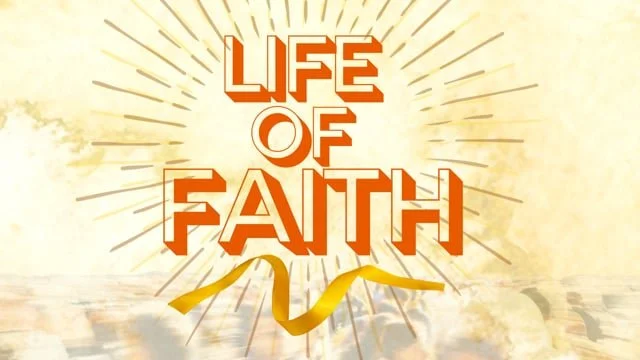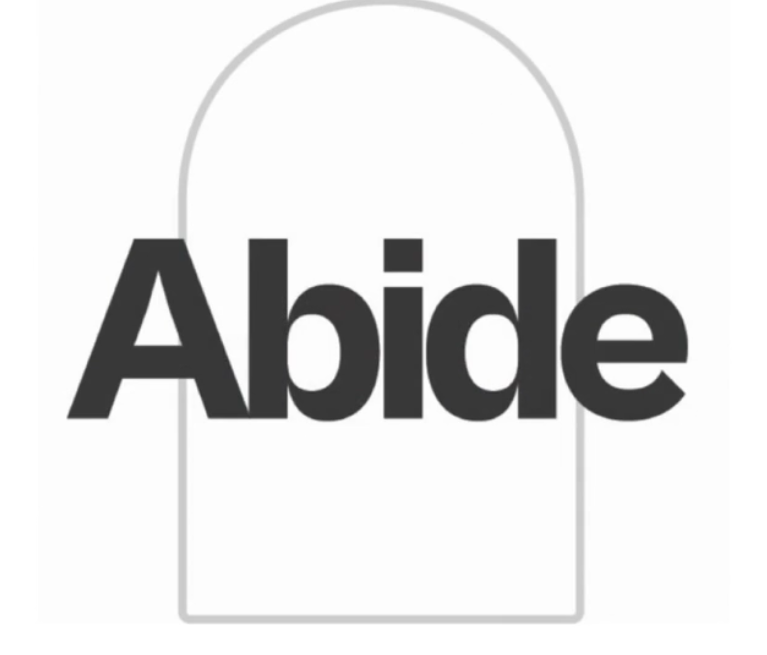Exodus Chronicles: Part 2
Pastor Rollan Fisher
Focus: As you follow Jesus into his abundant and eternal life, remember that things can get harder before they get better, but in Jesus you will be the victor.
Things Can Get Harder
Before They Get Better
Yet Christ is the Victor
Exodus 5:1-14
Afterward Moses and Aaron went and said to Pharaoh, “Thus says the Lord, the God of Israel, ‘Let my people go, that they may hold a feast to me in the wilderness.’” But Pharaoh said, “Who is the Lord, that I should obey his voice and let Israel go? I do not know the Lord , and moreover, I will not let Israel go.” Then they said, “The God of the Hebrews has met with us. Please let us go a three days' journey into the wilderness that we may sacrifice to the Lord our God, lest he fall upon us with pestilence or with the sword.” But the king of Egypt said to them, “Moses and Aaron, why do you take the people away from their work? Get back to your burdens.” And Pharaoh said, “Behold, the people of the land are now many, and you make them rest from their burdens!” The same day Pharaoh commanded the taskmasters of the people and their foremen, “You shall no longer give the people straw to make bricks, as in the past; let them go and gather straw for themselves. But the number of bricks that they made in the past you shall impose on them, you shall by no means reduce it, for they are idle. Therefore they cry, ‘Let us go and offer sacrifice to our God.’ Let heavier work be laid on the men that they may labor at it and pay no regard to lying words.” So the taskmasters and the foremen of the people went out and said to the people, “Thus says Pharaoh, ‘I will not give you straw. Go and get your straw yourselves wherever you can find it, but your work will not be reduced in the least.’” So the people were scattered throughout all the land of Egypt to gather stubble for straw. The taskmasters were urgent, saying, “Complete your work, your daily task each day, as when there was straw.” And the foremen of the people of Israel, whom Pharaoh's taskmasters had set over them, were beaten and were asked, “Why have you not done all your task of making bricks today and yesterday, as in the past?”
Things Can Get Harder
When we follow Jesus into his life of promise, things can seem to get harder before they get better.
Have no doubt about it, when God has called you to himself in Christ and for his Kingdom purposes, the resistance to your forward progress will begin.
Difficulties do not mean that you are not going in the right direction.
Once you have received the word of the Lord, do not be discouraged by thinking difficulties are a strange thing, but be encouraged that they are signs that you are going in the right direction.
There is intentional, Ephesians 6 resistance in the spiritual realm to dissuade and discourage the worship of God.
Battle is a barometer, not a compass.
To the naked eye, they may look similar, but they are not the same.
What is a barometer?:
It is an instrument measuring atmospheric pressure, used especially in forecasting the weather and determining altitude.
The closer you get to God (altitude) and his purposes, the greater the pressure can become, but the closer you are to his strong hand being revealed (Exodus 6:1).
Exodus 6:1
But the Lord said to Moses, “Now you shall see what I will do to Pharaoh; for with a strong hand he will send them out, and with a strong hand he will drive them out of his land.”
That strong hand was the Lord’s.
“Miracles are a retelling in small letters of the very same story which is written across the whole world in letters too large for some of us to see.”
C.S. Lewis
Just because things get harder doesn’t mean that God has forgotten you.
Just because things get harder doesn’t mean that what you are doing is not what the Lord has called you to do.
Ease does not equate to the will of God.
Just because things get harder doesn’t mean that God is not planning to help you.
You must stick to what he told you in moments of lucidity to complete what he has said to do in moments of challenge.
The Silver Chair examples.
Before They Get Better
Things start to get better when we remember the person and promises of God.
Exodus 5:15-23
Then the foremen of the people of Israel came and cried to Pharaoh, “Why do you treat your servants like this? No straw is given to your servants, yet they say to us, ‘Make bricks!’ And behold, your servants are beaten; but the fault is in your own people.” But he said, “You are idle, you are idle; that is why you say, ‘Let us go and sacrifice to the Lord.’ Go now and work. No straw will be given you, but you must still deliver the same number of bricks.” The foremen of the people of Israel saw that they were in trouble when they said, “You shall by no means reduce your number of bricks, your daily task each day.” They met Moses and Aaron, who were waiting for them, as they came out from Pharaoh; and they said to them, “The Lord look on you and judge, because you have made us stink in the sight of Pharaoh and his servants, and have put a sword in their hand to kill us.” Then Moses turned to the Lord and said, “O Lord, why have you done evil to this people? Why did you ever send me? For since I came to Pharaoh to speak in your name, he has done evil to this people, and you have not delivered your people at all.”
Do not be surprised when God is moving and making forward progress in your life that work becomes more demanding, family situations arise and it seems that you can not complete school assignments while serving God.
It will feel like you are now having to choose between your immediate needs and what God is calling you into as good.
They will seem in conflict with one another so that even those who were proclaiming the good news to you, encouraging your participation in church and the community of God now seem like opponents to you because all they are doing is adding “extra burdens” to your life.
If you don’t recognize this cycle, it will never end.
Christ’s antidote to this conundrum is simple.
Seek his Kingdom first.
Matthew 6:31-34
31 Therefore do not be anxious, saying, ‘What shall we eat?’ or ‘What shall we drink?’ or ‘What shall we wear?’ 32 For the Gentiles seek after all these things, and your heavenly Father knows that you need them all. 33 But seek first the kingdom of God and his righteousness, and all these things will be added to you. 34 “Therefore do not be anxious about tomorrow, for tomorrow will be anxious for itself. Sufficient for the day is its own trouble.
We have the tendency to either overestimate or underestimate the importance of others’ involvement in our lives for the work of God to be accomplished.
Remember that it was the same Moses (and these will be the same people in your life) who a chapter before was welcomed bringing the good news of God’s deliverance.
Exodus 4:30-31
Aaron spoke all the words that the Lord had spoken to Moses and did the signs in the sight of the people. And the people believed; and when they heard that the Lord had visited the people of Israel and that he had seen their affliction, they bowed their heads and worshiped.
Moses was specifically sent by God to be used by God to set the Israelites free.
Who might you be resisting in your life that God has sent?
“Pain insists upon being attended to. God whispers to us in our pleasures, speaks in our consciences, but shouts in our pains. It is his megaphone to rouse a deaf world.”
C.S. Lewis
How much more so does Jesus mercifully use others into our lives to wake us up to his direction when our eyes and ears are closed - voluntarily or involuntarily?
The do’s and don’ts of the battle:
Do not be discouraged
Do not blame shift
Do not forget God’s promises
*When you put your faith in Christ, you are not putting your confidence in your ability to change but God’s ability to change you.
Yet Christ is the Victor
Jesus is the victor that ushers us into his ultimate victory by his resurrection from the dead.
Gethsemane and the cross are perfect examples of how Jesus is the ultimate victory for his people demonstrating that though times can get worse before they got better, Christ is the ultimate victor.
“The author of the hymn 'Amazing Grace', John Newton, who once was a slave ship captain, and who became a Christian preacher and an enemy of the slave trade, once said: 'I have reason to praise [God] for my trials, for, most probably, I should have been ruined without them.' The author of The Gulag Archipelago , Aleksandr Solzhenitsyn, who suffered for twenty years in the hellish prison camps he describes in that book, wrote: 'Bless you prison, bless you for being in my life. For there, lying upon the rotting prison straw, I came to realize that the object of life is not prosperity as we are made to believe, but the maturity of the human soul.' This does not mean that Newton would have chosen to go through his trials, or that Solzhenitsyn in any way enjoyed the terrible suffering of his imprisonment. But it means that in retrospect they can see that God used those difficulties to bless them in the long run.”
Eric Metaxas, Miracles: What They Are, Why They Happen, and How They Can Change Your Life
Christ’s cross comes before Christ’s victories in our lives.
Always remember that this life is not all that matters.
Romans 8:28-30
And we know that for those who love God all things work together for good, for those who are called according to his purpose. For those whom he foreknew he also predestined to be conformed to the image of his Son, in order that he might be the firstborn among many brothers. And those whom he predestined he also called, and those whom he called he also justified, and those whom he justified he also glorified.
When we serve Jesus with faith and without fear, we properly interpret our challenges, turn from our sin to be forgiven at the cross and follow Jesus into his ultimate victory - life abundant and eternal!!
Second City Church - Pastor Rollan Fisher




















